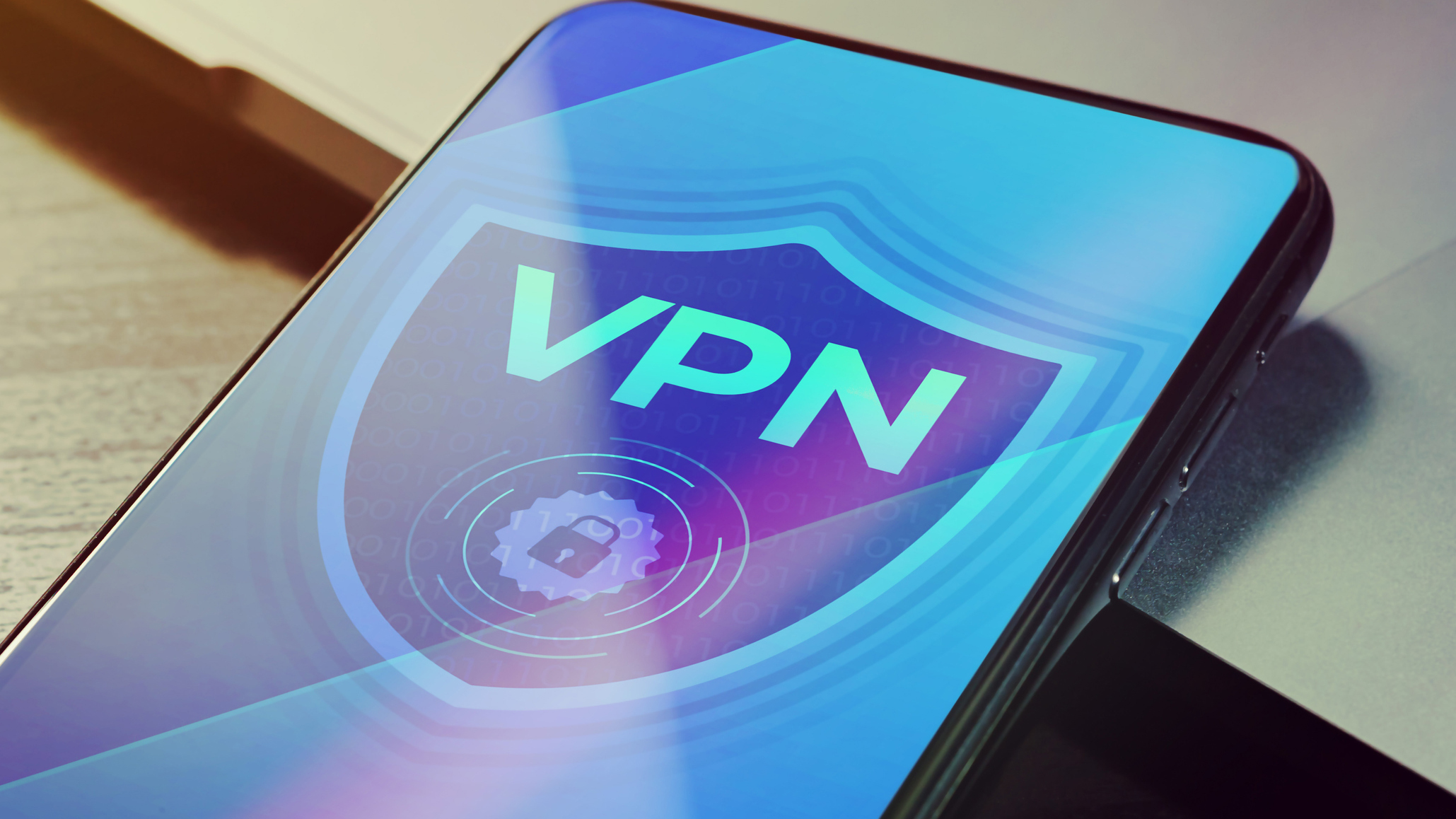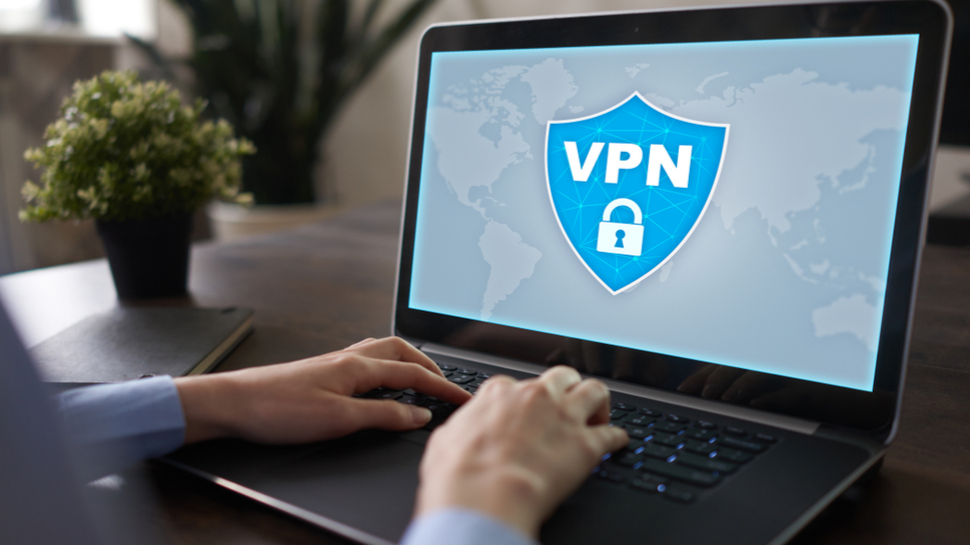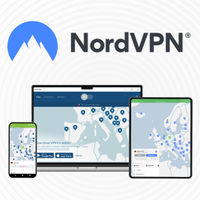How could free VPNs get better in 2025?
Free VPNs are handy in a pinch, but they could be even better

Even though the holiday season is a massive delight for folks all around the world, thanks to the sheer amount of sales on offer, nothing beats free - except in the world of VPNs.
Unfortunately, a lot of free VPNs are either untrustworthy or scams, which is why we don’t recommend them. Plus, even those that are worth using have serious limitations, ranging from poor connection speeds to non-existent customer support.
In this article, I'll dig into the five biggest flaws of free VPNs, why they're no match for today's best VPNs, and how they could get better in the new year.
NordVPN - up to 74% off + 3 months free
The best VPN overall
NordVPN is hands down the best VPN service we've tested, offering class-leading speeds and the ability to unblock every streaming site you can think of. It's also a one-stop security solution, thanks to extras like built-in antivirus, ad-blocking, and cyber insurance. The holiday sales mean you can grab a plan from just $2.99 a month, plus you'll also get a 30-day money-back guarantee to try before you commit.
Why we don’t always recommend free VPNs
A lot of free VPNs are like tasting samples, designed to make you hungry for the real (paid) product.
Although VPNs with freemium plans are the best way to safeguard yourself online without having to pay anything, they lack a lot of features (think limited bandwidth, slow speeds, and fewer servers), which are usually reserved for paid users. So, you won’t get the full functionality unless you’re a subscriber.
On the other hand – and this is where it gets really ugly – some free VPNs are outright scams designed to harvest your data. While they may look legitimate, they can actually be Trojan horses packed with malware.
They don’t care about your digital privacy at all and are likely to keep tabs on your every move (including the websites you visit and what you do on them) while connected.
1. Increase the data caps
Most free VPNs offer only a limited amount of data, with the most popular data cap being 10 GB a month. This is fine if you only use a VPN sparingly.
However, if you plan on having an active VPN connection all the time or want to stream a lot of content, torrent, game online, or engage in other bandwidth-hungry tasks, it’ll run out quickly.
Increasing the amount of data on offer will make free VPNs more viable
Increasing the amount of data on offer will make free VPNs more viable, seeing as more data would mean more freedom for the user, i.e., more time to check out social media, binge-watch shows or high-res YouTube videos, do research for work or college, make more secure downloads, and so on.
It's worth noting, however, that a truly unlimited free VPN isn't completely fiction – just look at Proton VPN. Additionally, PrivadoVPN is a good example of the quality VPNs can offer with their free plans. It provides the conventional 10 GB per month plus the ability to continue using the VPN, although at reduced I Mbps speeds, should the user exceed this cap.
2. More server choice
This one's a biggie. Almost every single free VPN restricts the number of available servers, typically offering only a handful.
For example, even the best ones in the industry only offer 10-15 server locations, and some free ones don't even allow you to pick a server yourself.

Check out our detailed (jargon-free) guide to VPN servers – and how to choose one.
Although fewer servers won't impact your online privacy, it will almost certainly result in overcrowded servers and sluggish speeds. As a result, expect slow-loading pages and a stodgy browsing experience.
This, combined with the fact that free VPNs don't invest in rotating IP addresses for free servers, makes them less than ideal for avid streamers who need to connect to specific locations to unblock geo-restricted content – or folks looking to escape online censorship in countries such as China, Russia, and Turkey.
3. Improve customer support
Premium VPNs use the subscription fees they charge to invest in things like 24/7 customer support (offered via various channels, such as live chat, phone, and email) and in-depth knowledge hubs on their websites. All of which go a long way in improving the overall user experience.
Most free VPNs don't offer comprehensive customer support
Most free VPNs, however, don't offer a similar level of support for their users. So, if things go wrong, like if you're having trouble with setting up the VPN or connecting to a server, it’s harder to connect to a real person who can help you out.
You will, unfortunately, be left to troubleshoot your own issues or wait ages for a response to an email ticket.
I'd like to see this change. Although investing in a full-fledged customer support wing could be difficult for free VPNs, they could at least offer a well-laid-out FAQ and tutorials section with all the most common queries answered and the setup process explained in detail.
4. Ramp up the speed
Free VPNs tend to be slower than their paid counterparts. This is, once again, because they lack the subscription funds to maintain the necessary infrastructure.
Plus, as mentioned earlier, free services offer only a handful of servers, which can cause congestion and result in abysmal speeds.

Wondering which VPN is the quickest? We regularly put them to the test – check out today's fastest VPNs.
Furthermore, the amount of advertisements free VPNs throw your way isn't only annoying, but it can also end up slowing down your connection speeds.
Sluggish speeds alone could make it impossible to use free VPNs for tasks such as gaming, streaming, and torrenting, not to mention their data caps and lack of server choices.
It’s worth mentioning here, however, that PrivadoVPN and Proton VPN, as well as Windscribe, actually perform pretty well in terms of speed (mostly because they offer paid plans, too, and are able to use that same technology for their free offerings). They’re exceptions to the norm – although I'd like to see more free VPNs join them in providing users with a consistently fast experience.
5. Be more transparent
This is one of the biggest reasons we warn people to stay away from free VPNs, especially the ones that crop up out of nowhere. A VPN that only has a free plan to offer, meaning it's not using its free tier to provide a taste of its service to try and sell a more feature-packed paid plan, is also usually a red flag because it's difficult to know its true intentions. How does it make money?
Unfortunately, a lot of free VPNs have threadbare privacy policies that do a terrible job of outlining what happens to your data, such as how it's collected and stored and whether the VPN keeps logs. Free VPNs are known to log user data and sell it to third parties (such as advertisers) for a profit.
A lot of free VPNs have threadbare privacy policies
Other questions, such as where the VPN is based and whether it has undertaken an audit, must also be answered, but it's worth noting that dodgy free services won't provide such details.
Even worse, cybercriminals are increasingly using fake VPN apps to spread malware (and it doesn't matter if the VPN app is in an official store, like Google Play), which is why 2024 saw a surge in malicious free VPN apps.
Naturally, you wouldn’t use a paid VPN that isn’t clear about how/if it protects your digital privacy, so there’s no reason to use a free one that isn’t either. This is why we recommend you only use freemium editions of paid VPNs – because there's a lot riding on them to ensure customer trust and impress users with their free plans.
Krishi covers buying guides and how-to's related to software, online tools, and tech products here at TechRadar. Over at Tom's Guide, he writes exclusively on VPN services. You can also find his work on Techopedia and The Tech Report. As a tech fanatic, Krishi also loves writing about the latest happenings in the world of cybersecurity, AI, and software.
